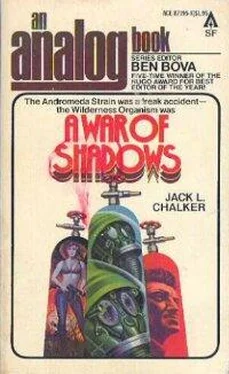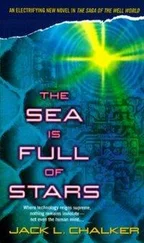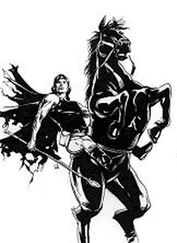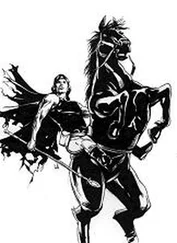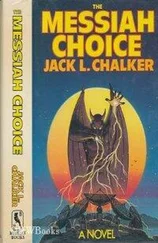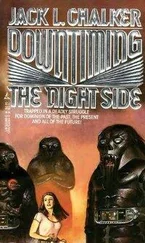Jack Chalker - A War of Shadows
Здесь есть возможность читать онлайн «Jack Chalker - A War of Shadows» весь текст электронной книги совершенно бесплатно (целиком полную версию без сокращений). В некоторых случаях можно слушать аудио, скачать через торрент в формате fb2 и присутствует краткое содержание. Год выпуска: 1979, ISBN: 1979, Издательство: Ace Books, Жанр: Фантастика и фэнтези, на английском языке. Описание произведения, (предисловие) а так же отзывы посетителей доступны на портале библиотеки ЛибКат.
- Название:A War of Shadows
- Автор:
- Издательство:Ace Books
- Жанр:
- Год:1979
- ISBN:0-441-87195-X
- Рейтинг книги:5 / 5. Голосов: 1
-
Избранное:Добавить в избранное
- Отзывы:
-
Ваша оценка:
- 100
- 1
- 2
- 3
- 4
- 5
A War of Shadows: краткое содержание, описание и аннотация
Предлагаем к чтению аннотацию, описание, краткое содержание или предисловие (зависит от того, что написал сам автор книги «A War of Shadows»). Если вы не нашли необходимую информацию о книге — напишите в комментариях, мы постараемся отыскать её.
A War of Shadows — читать онлайн бесплатно полную книгу (весь текст) целиком
Ниже представлен текст книги, разбитый по страницам. Система сохранения места последней прочитанной страницы, позволяет с удобством читать онлайн бесплатно книгу «A War of Shadows», без необходимости каждый раз заново искать на чём Вы остановились. Поставьте закладку, и сможете в любой момент перейти на страницу, на которой закончили чтение.
Интервал:
Закладка:
Allen Honner was scared to death. His face was white, and he was sweating profusely despite central air conditioning.
“Look,” he said. “I’m powerful. One of the most powerful men in this country! Anything you want! Power, money—you name it. Anything. Just—don’t hurt me.”
Bob Hartman gave a dry chuckle. “All right, Mr. Honner, I’ll make you a deal. The truth. The complete and full story, no commas and periods omitted. That’s the price, Mr. Honner. The truth, or we get it our way.”
The Chief of Staff looked around at the grim faces staring down at him on his own bed. Fear was mixed with confusion. “I don’t understand you people! What’s in it for you? What the hell will this get you?”
Hartman shook his head sadly. “I see a brilliant mind reduced to a pathetic pawn. I see men and women afraid to move, to think. Others—who knows how many countless lives wracked by a disease that was engineered by human minds. Engineered!” His voice exploded with rage. “Crippled minds, crippled bodies!” Suddenly his tone lowered, became calm and mixed with pity. “No, Mr. Honner, I don’t think you and your kind will ever understand what we get out of this.” He turned to one of the women, nodded, and she brought up a huge case filled with, it turned out, medical gear and monitors. Honner’s eyes fell on it and went wide with terror.
“All right! All right! What do you want to know?” he cried, then seemed to sink down in the bed, resistance gone. And yet, as they stared at him, a curious half-smile crept into his expression, and his eyes seemed wild. “I’ll tell you what I can,” he said. “It won’t matter. It’s too far along. Even if you know everything now, there’s not a damned thing you can do to stop it.”
Hartman didn’t like the switch in the man’s manner; that last was spoken not with bravado but out of conviction. He began to have the creepy feeling that Honner just might be right.
He reached over, got a chair, and sat down in re-versed position, leaning forward on the chair back. Recording devices started.
“Whose phone rings when I call 1-500-555-2323?” Hartman asked.
Honner chuckled. “One of mine—if I’m there. If not, one of my assistants’. The coder on the phone makes the voice identical no matter who is speaking.”
Hartman nodded. “Where was the Wilderness Organism developed?” he asked.
This, too, amused Honner. “At Fort Dietrick, at NDCC, of course. A private foundation we helped endow started the work based on the Cambridge stuff long ago. A couple of solid scientists felt they knew where both we and the Russians had made our mistakes, and saw the total ban on research as dumb. They, like we, were convinced that other nations were working on the recombinant DNA problems, and that we would be vulnerable, wide open in fact, if that were the case. It was good defense and good science. The work was there; you couldn’t wipe it away. It was inevitable that it be pursued. When President Wainwright was elected to his first term, we arranged for that and a number of other projects to be transferred, funded, and masked by NDCC, supposedly as cancer research—which it was, too, among other things.”
“Where are the remaining blue cylinders and Wilderness Organism cultures?”
“Some are at Camp Liberty, some are at Dietrick, in a special bunker, and the rest—most of it—is with the poison gas stores at Dugway in Utah,” Honner said. “Except, of course, for the stuff already distributed. We didn’t want some of it out very long. It’s subject to easy mutation, and that lowers the effectiveness of the vaccines.”
Hartman took a deep breath. “Who are ‘we’, Mr. Honner? Who, besides you, is involved in this?”
“Patriots,” Honner said. “Men and women of vision. This isn’t anything that’s just grown in the last couple of years, you know. It began, in fact, before I was born—a group of patriotic, concerned citizens who saw how this country was going to hell. We were weakening ourselves and retreating from the world in a slow, steady erosion of power and authority—matched by the same disintegration of society inside the country. Open sex, the breakup of the family, the discarding of old values without gaining or adding any new ones. These people deplored this, organized, worked long and hard to set this up, to stave off the eventual collapse either by external attack or from within until they were in a position to control this country and reverse the declines. It was a long time coming—I doubt if a single one of the original people is still alive. But they did their work well. Younger people, bright, ambitious people were raised and nurtured and came up slowly within the system, aided by political maneuvers to place one key person here, another there, working, waiting, until the seat of power was also ours, occupied by one of our own people.”
“President Wainwright,” Hartman said. “They always said that he was the type of man you’d invent for President. Now you’re telling me he was invented?”
Honner nodded and laughted. “And, you see,that’s why you can’t win. It isn’t one guy like me in a power position, or a dozen. It’s hundreds and hundreds, all in the right places. We control the Executive Branch. We control five Supreme Court positions—thanks to some timely and easily arranged natural deaths. We already had two seats anyway. Some top senators and key congressmen. And, most important, a lot of key civil service bureaucrats.”
Even though Jake had guessed it and Hartman had suspected it, the sheer scope of the conspiracy staggered him. And, once in those positions, those key people had unlimited access to information on most Americans, including others who worked for government. The IRS could tell them just who was spending what on what. The Treasury had a record of every check anybody ever wrote. Blackmail, pressure, and outright power bought the others—and, in many cases, bureaucracy did it of its own accord. If the proper codes and the proper signatures were on the proper forms, you could get away with anything.
Honner talked on and on, and the more he talked the more confident he became, and not without reason. After all, what could Bob Hartman and Jake Edelman do with all this? Go to the press—which was totally controlled and censored? Get powerful political help? Who was who? Even Honner wasn’t sure of everybody; they needed a computer to keep track. And on the sixteenth President Wainwright would announce that the plot had been smashed, that it was in fact internal, and launch a massive purge of government. He would eliminate—literally —those he needed to, consolidate his power, so that only his own people held the reins in all three branches of government. Scapegoats would be trotted out and shot, some after giving drug-induced confessions. The takeover would be absolute; within one to two weeks after the address, the last echoes of democracy and freedom in the United States would be gone, probably forever. Even the radicals—the products of schools, universities would be purged. A new generation would be raised under different standards according to government edict. Conformity would be enforced by merciless pressure; the price of not obeying would be too great.
The plot was cracked, all right—but not in time, not in time at all. Honner, Hartman thought with a sinking feeling, was right. They were discovering the evidence of a coup d’etat weeks after it had already taken place.
Sam Cornish walked into the darkness of the subway tunnel. He suddenly felt a little foolish and out of place, and he looked at the pistol in his right hand and thought, What the hell am I doing here?
It was not complete darkness; signal lights and occasional bulbs planted for emergency use every ten meters or so made it possible to see without breaking his neck. Once or twice he came close to the third rail, the source of power and current for the trains, but managed to avoid stepping directly on or leaning into a hot section. He frankly wasn’t certain what was hot and what was not.
Читать дальшеИнтервал:
Закладка:
Похожие книги на «A War of Shadows»
Представляем Вашему вниманию похожие книги на «A War of Shadows» списком для выбора. Мы отобрали схожую по названию и смыслу литературу в надежде предоставить читателям больше вариантов отыскать новые, интересные, ещё непрочитанные произведения.
Обсуждение, отзывы о книге «A War of Shadows» и просто собственные мнения читателей. Оставьте ваши комментарии, напишите, что Вы думаете о произведении, его смысле или главных героях. Укажите что конкретно понравилось, а что нет, и почему Вы так считаете.
